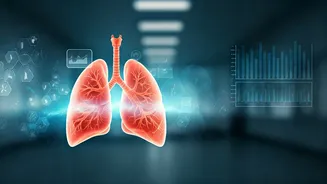Heart Health First
Cardiologists underscore the significance of proactive health evaluations before young adults dive into their gym routines. These tests act as a crucial
checkpoint, offering a thorough understanding of a person's cardiovascular health and spotting any underlying issues. By identifying potential risks early, individuals can take steps to avert serious heart-related problems, which are more common than many realize, even amongst the young and healthy.
Lipid Panel Check
The first essential test recommended is a lipid panel. This test measures the levels of cholesterol and triglycerides in the blood. High levels of bad cholesterol (LDL) and triglycerides can lead to the buildup of plaque in the arteries, a condition known as atherosclerosis. This buildup narrows the arteries and restricts blood flow to the heart and other organs. The test also assesses good cholesterol (HDL), which helps remove bad cholesterol. Getting this panel provides baseline measurements, helping track changes as one begins exercising.
Blood Pressure Basics
Next, monitoring blood pressure is critical. High blood pressure, or hypertension, puts extra strain on the heart and blood vessels, increasing the risk of heart attack and stroke. Regular blood pressure checks can identify if someone has high blood pressure, which can be managed through lifestyle modifications such as diet, exercise, and, if necessary, medication. Knowing your baseline blood pressure, and then monitoring it as your body changes when you start exercising can aid in preventing future issues.
Glucose Level Test
The third important test is a fasting blood glucose test. This test measures blood sugar levels. High blood sugar can be a sign of prediabetes or diabetes, both of which elevate the risk of heart disease. Regular exercise can improve insulin sensitivity, which helps regulate blood sugar. However, if blood sugar levels are already elevated, a healthcare professional can recommend the best course of action, including changes in diet, exercise, or medication. Understanding your blood sugar levels is essential to help prevent complications.
Electrocardiogram (ECG)
An electrocardiogram (ECG) is a test that records the electrical activity of the heart. It helps identify any abnormalities in the heart's rhythm or structure. During exercise, the heart works harder, and an ECG can reveal if there are any underlying heart conditions that might be aggravated by physical activity. These could be conditions like arrhythmias or signs of ischemia, where the heart is not getting enough oxygen. An ECG provides an important baseline and helps identify potential risks early on.
Exercise Stress Test
An exercise stress test, often recommended by cardiologists, is another vital assessment. This test monitors your heart's activity while you're exercising, usually on a treadmill. This helps evaluate how well your heart handles the increased demands of physical activity. During the test, your heart rate, blood pressure, and ECG are monitored. If any issues arise during exercise, it could indicate underlying heart problems that may need further investigation and treatment. This test offers valuable insights into your heart's performance under stress.



















